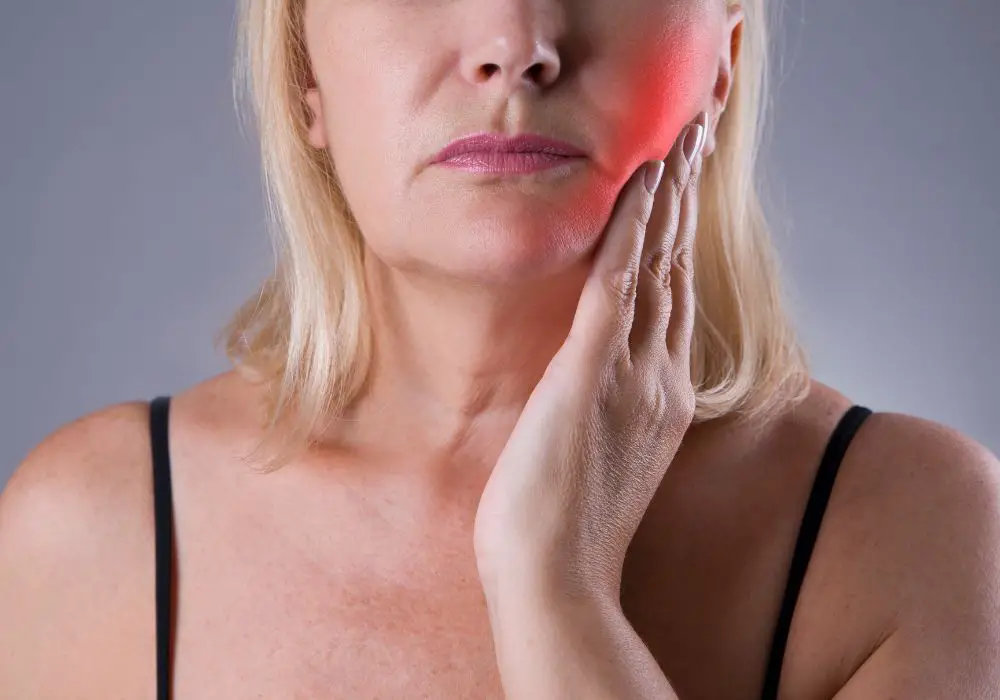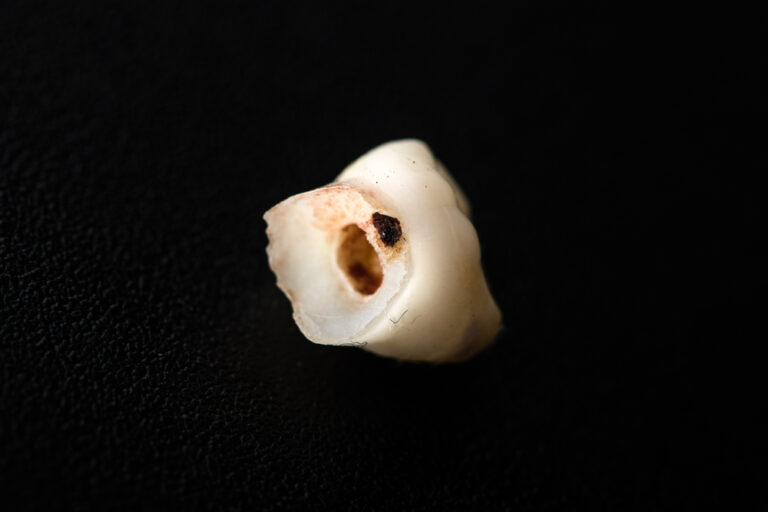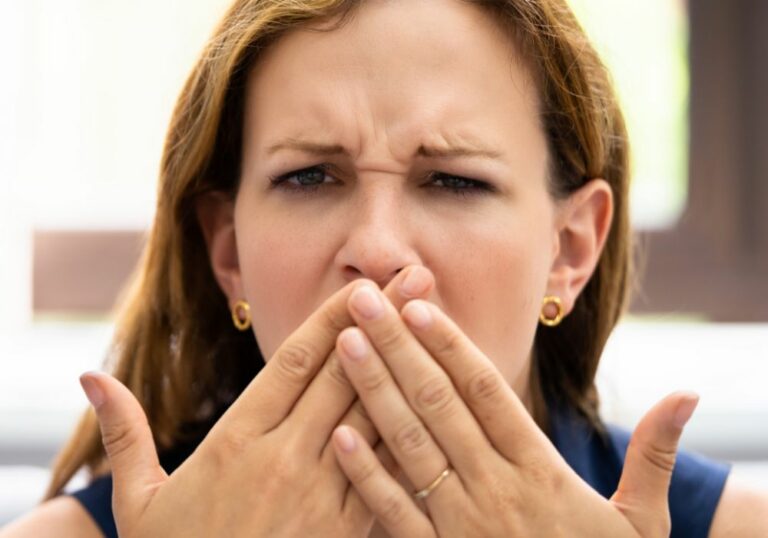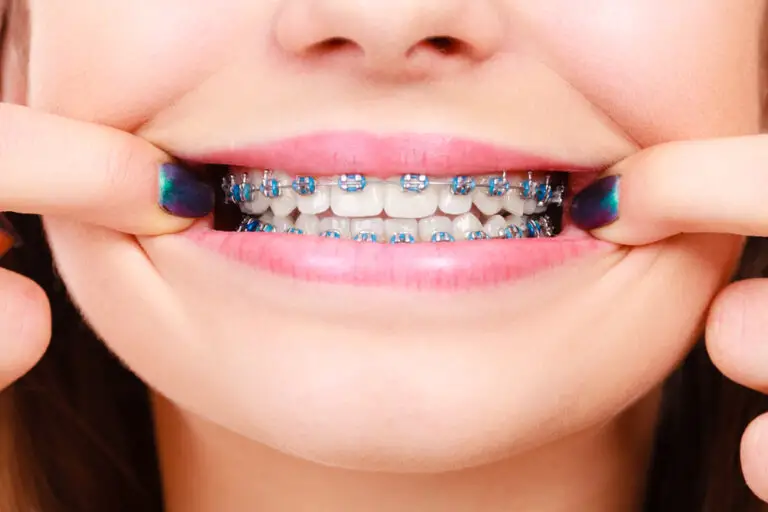Have you ever woken up in the middle of the night feeling like your teeth are pulsating or throbbing? This unusual sensation can be alarming, but is usually harmless. Here’s an in-depth look at why you may experience tooth pulsing at night, what it means, and when to see a dentist.
What causes tooth pulsing at night?
There are several potential reasons you may feel a pulsating sensation in your teeth during the night.
1. Tooth sensitivity
One of the most common causes of tooth pulsing or throbbing at night is dentin hypersensitivity, also known as tooth sensitivity. This occurs when the dentin layer underneath your tooth enamel becomes exposed, often due to enamel erosion from acid wear or gingival recession of the gums.
The dentin contains thousands of microscopic tubules leading to the tooth pulp and nerves. When these tubules are exposed, hot, cold, acidic, or sugary foods and drinks can stimulate the fluid inside the tubules and the nerves they encase. This causes sharp, sudden pain that feels like pulsing.
Tooth sensitivity tends to worsen at night for a few reasons:
- Lying down allows gravity to pull fluid down into the dentin tubules, stimulating nerves
- Saliva flow decreases during sleep, so less saliva is present to neutralize acid and coat sensitive areas
- Teeth clenching or grinding at night puts more pressure on already sensitive teeth
Nighttime tooth sensitivity may feel like throbbing, pounding, or electric pulse-like pain. It may be triggered by breathing cold air through your mouth at night or sleeping in a cooler room.
2. Dental abscess
A dental abscess is a pocket of pus that forms inside the teeth or gums due to a bacterial infection. Abscesses most often occur in teeth with deep decay, cracked teeth, gum disease, or after trauma.
Abscesses can cause severe, pounding toothache that keeps getting worse because the pus and swelling puts pressure on the tooth’s nerve. Pain is often worst at night, because when you lie down, blood flow to the head and gravity increases pressure on the abscess.
The throbbing pain from an abscessed tooth is often described as a constant, heavy pounding feeling that worsens when you bite down. The pain may radiate to other teeth, your jaw, ear, and head.
3. Bruxism
Bruxism is the clinical term for habitual teeth grinding or clenching. Most people occasionally clench their jaws due to stress or subconsciously grind their teeth at night. But when it becomes frequent and forceful, it can cause symptoms.
Because bruxism often occurs during sleep, it’s a prime cause of nighttime tooth pain like sensitivity, ache, and pulsing. Grinding and clenching puts tremendous pressure on the teeth that can inflame nerves, cause microscopic cracks in enamel, and fracture restorations. This damage leads to pain symptoms.
The pain of bruxism-induced tooth sensitivity or cracks feels like a sharp ache or throbbing sensation when biting or when exposed to hot or cold temperatures. The pain is typically worst upon waking in the morning after a night of vigorous grinding.
4. TMJ disorders
Temporomandibular joint and muscle disorders affect the joints connecting your jaw to your skull and the facial muscles involved in chewing. TMJ disorders cause symptoms like:
- Pain or aching in front of the ear that spreads to the jaw, face, teeth, head and neck
- Jaw pain when chewing or opening the mouth wide
- Clicking, popping or grinding noises in the jaw
- Locking of the jaw when attempting to open or close the mouth
The constant muscle tension and stress on the jaw joint from TMJ dysfunction can radiate and refer pain to the upper and lower teeth that feels like throbbing or pulsing, especially at night.
5. Sinus infection
Your upper back teeth sit right next to your maxillary sinuses – the air-filled spaces above your upper jaw around the nose and cheeks. When these sinuses become inflamed due to sinusitis (sinus infection), the swelling and fluid buildup can radiate pain and pressure to those upper back molars.
A sinus infection may therefore cause toothache, pain when chewing, and a feeling of throbbing pressure in those upper molars that feels like pulsating. The tooth pain is often worse at night when lying in bed, as pressure and blood flow increases to the head.
When to see a dentist?

Occasional mild throbbing tooth pain at night usually isn’t concerning and can be managed with home remedies and over-the-counter pain medication. But if you experience any of the following, you should make an appointment to see your dentist right away:
- Severe nighttime tooth pain that disrupts sleep
- Tooth pain that does not resolve within a few days
- Sensitivity to hot and cold foods/drinks that lingers
- Swelling in your gums, jaw, or neck
- Bleeding from the gums around a painful tooth
- Fever, headache or eye pain along with toothache
Persistent, severe, or worsening tooth pain are signs you may have a significant dental issue needing professional diagnosis and treatment. Leaving toothaches untreated allows damage to spread, infection to worsen, and the problem to become more complex to resolve. Early intervention prevents complications.
How dentists diagnose nighttime tooth pulsing?
If you visit the dentist complaining of a throbbing or pulsating toothache at night, they will perform a series of diagnostic tests to pinpoint the exact cause. Here are some methods your dentist may use:
1. Clinical examination
The dentist will first conduct a visual inspection of your entire mouth, eyes and neck. They’ll look for:
- Signs of decay, cracks or leaking restorations
- Red, swollen, bleeding gums indicating infection
- Swollen lymph nodes, bumps or lesions
- Discoloration, swelling or asymmetry of the face or jaws
- Limited opening of the jaw
Palpating your facial muscles and jaw joint helps identify TMJ disorder sources of referred tooth pain.
2. Dental x-rays
After a clinical exam, your dentist will often take x-rays to see below the surfaces of your teeth and bone. Dental x-rays allow dentists to find issues like:
- Small cavities between teeth
- Bone loss from gum disease
- Abscesses at the tooth root
- Cysts or tumors of the jaw bone
- Sinus inflammation
Without x-rays, these hidden problems can often only be detected once they become more severe. So x-rays are important for identifying the early causes of mysterious toothaches.
3. Sensibility testing
Your dentist will test your tooth pulp sensibility by exposing it to temperature extremes or sweet stimuli. They may place hot and cold instruments directly onto suspect teeth and have you drink cold water.
If you react with sharp pain, it indicates the tooth pulp nerve is vital and exposed due to cavity, crack, high filling, or gum recession causing nighttime sensitivity. Lack of sensation points to nerve death.
4. Percussion
Tapping lightly on your teeth with a dental instrument applies pressure to the tooth and surrounding bone and tissues. If you feel a sharp pain when a tooth is percussed, it may signal infection, inflammation, fracture or other issues.
5. Pulpal testing
There are specialized tests your dentist can perform to check your tooth pulp and nerve health. Thermal tests assess nerve activity when exposed to hot and cold. Electric pulp tests use a small charge to stimulate the nerve.
The pulp test results help your dentist determine if the nerve inside a painful tooth is still vital or has died due to infection, trauma or decay.
6. Bite analysis
Examining your bite helps diagnose issues like bruxism, malocclusion, and TMJ disorders that may be giving nighttime tooth pain symptoms. Your dentist may have you bite down on a stick of wax or other dental impression material.
They analyze the imprint for uneven force distribution, premature contacts, and excessive wear that show problems with bite alignment and grinding.
Treatments for nighttime tooth pulsing

Based on your symptoms and their examination findings, your dentist will devise a treatment plan tailored to the cause of your tooth pulsing at night. Some common treatments include:
1. Treating infections
For severe infections like abscesses, your dentist will likely prescribe a course of antibiotics to kill the bacteria involved. However, antibiotics alone usually don’t cure dental abscesses. Drainage and decompression of the infection is also needed.
Your dentist may use incision and drainage to relieve pressure and open the abscess pocket to allow it to drain and start healing. In cases of advanced tooth decay, root canal treatment or tooth extraction may be required.
2. Restoring teeth
If the nighttime throbbing stems from tooth decay, fracture, or a defective filling, your dentist will restore the tooth structure and seal sensitive areas. Options like dental fillings, inlays, onlays, crowns, or bonding can protect damaged teeth.
3. Root canal treatment
If the tooth pulp (nerve) is infected with irreversible pulpitis due to decay or trauma, a root canal can remove the diseased pulp and saves the tooth. Removing the infected nerve tissue provides pain relief.
4. Occlusal adjustment
Recontouring misaligned teeth or adjusting dental fillings that meet unevenly can distribute force properly during biting and chewing. This reduces pressure on specific teeth prone to nighttime sensitivity or pain from a bad bite.
5. Bruxism treatment
For nocturnal teeth grinding habits causing symptoms, your dentist may prescribe a custom night guard. These acrylic dental appliances worn at night sit between your teeth to prevent grinding damage. This helps reduce symptoms like sensitivity and throbbing.
6. TMJ therapy
TMJ disorders are treated with a range of approaches like bite splints, anti-inflammatory medication, physical therapy, relaxation techniques, TMJ injections, and surgery in severe cases unresponsive to other treatments.
7. Desensitizing agents
For mild to moderate cases of dentin hypersensitivity, your dentist may recommend special toothpastes, mouthwashes, gels or chewing gum containing active ingredients like stannous fluoride, arginine, or potassium nitrate to calm nerve activity.
In-office professional desensitizing treatments like fluoride varnish application or sealing root surfaces may also be used for sensitivity relief.
8. Improving oral hygiene
Good daily brushing and flossing removes dental plaque that causes decay and tartar buildup that exacerbates sensitivity. Your dentist can show proper oral hygiene techniques to care for your teeth and keep them free of issues that provoke nighttime pain.
Home remedies for temporary relief

While you wait for a dental appointment, you can try some natural home remedies to temporarily alleviate nighttime tooth throbbing and pounding:
- Rinse with warm salt water – Saltwater rinses reduce inflammation and helps draw out infection from areas like abscesses.
- Take OTC pain medication – Anti-inflammatories like ibuprofen or acetaminophen can relieve sensitivity and mild-moderate dental pain.
- Use dental wax – Applying wax over a sharp cracking can help protect sensitive areas and prevent pain triggers from reaching the nerves.
- Ice pack application – Cold from ice can dull pain by constricting blood vessels and numbing nerves in the affected area.
- Avoid temperature extremes – Prevent hot or cold foods/drinks from contacting sensitive teeth to limit pulsing flare ups.
- Drink chamomile tea – Chamomile has anti-inflammatory properties that may temporarily calm dental pain.
- Try oil pulling – Swishing oils like sesame or coconut oil is thought to help draw out oral bacteria.
However, these should not replace professional diagnosis and care for permanent nighttime tooth pain relief. See your dentist promptly if throbbing persists.
When to seek emergency dental treatment?
Most instances of tooth pulsing or throbbing at night are not dental emergencies needing immediate treatment. However, you should seek emergency dental care right away if you have:
- Uncontrolled, severe toothache keeping you from normal function
- Facial swelling that proceeds down into the neck
- Difficulty breathing or swallowing
- Fever over 100°F (38°C)
- Pus discharge from the gums around the painful tooth
- Numbness/tingling of your lip, chin, or tongue
These could signify a dental emergency like an abscess, infection, or trauma requiring urgent care to prevent serious complications like blocked airways or the spread of infection.
Can nighttime tooth pulsing be prevented?
You can help avoid many common causes of nighttime tooth pain and throbbing by:
- Practicing good oral hygiene – brushing twice and flossing once daily
- Using a soft-bristled toothbrush and fluoride toothpaste
- Replacing your toothbrush every 3 months
- Seeing your dentist for regular professional cleanings and exams
- Getting dental work like fillings done early before decay worsens
- Wearing a custom night guard if you grind your teeth
- Using desensitizing dental products if you have sensitivity
- Avoiding frequent consumption of acidic foods and sugary snacks/drinks
- Treating sinus infections promptly to prevent referred tooth pain
Let your dentist know if you experience any unusual tooth sensitivity or pulsing so they can diagnose and address the issue early before it escalates. Prompt professional treatment provides effective relief so you can comfortably rest at night.
Key Takeaways
- Nighttime tooth pulsing or throbbing can stem from common problems like tooth sensitivity, infections, bruxism, TMJ disorders, and sinusitis.
- Persistent or worsening tooth pain should be examined promptly by your dentist to diagnose the cause.
- Dentists use clinical and radiographic dental exams along with tests like sensibility testing to identify the source of tooth pulsing.
- Treatment options depend on the diagnosed cause but may include dental restorations, root canals, bite therapy, occlusal adjustment, desensitizing agents, and night guards.
- For temporary pain relief, try saltwater rinses, OTC pain medication, ice packs, dental wax, oil pulling, and avoiding temperature extremes.
- Preventive dental visits and daily oral hygiene helps reduce your risk of nighttime dental pain.
Nocturnal tooth pulsing can be unnerving but is rarely a dental emergency. Pay attention to your symptoms and consult your dentist if you experience any unusual tooth pain, especially persistent or severe throbbing keeping you up at night. With the right diagnosis and care, you can find relief and rest comfortably.
Frequently Asked Questions
Here are answers to some common questions about experiencing throbbing tooth pain at night:
Why does tooth pain often get worse at night?
Toothaches tend to worsen at night for several reasons:
- Lying down increases blood flow and pressure on the affected tooth
- Nighttime grinding or clenching agitates the tooth
- Less saliva is produced when sleeping to coat and lubricate the mouth
- There are fewer distractions at night, so you focus more on the pain
- Your pain perception threshold is lower at night
Is it normal for tooth pain to fluctuate and come and go?
It’s very common for tooth pain from issues like cavities, cracked teeth and abscesses to vary in severity and come and go. The pain may be:
- Intermittent and seem to disappear at times
- Triggered or exacerbated by hot or cold temperatures
- More intense when chewing
- Temporarily relieved by over-the-counter pain medication
Such variable tooth pain should be examined by a dentist to determine the cause and proper solution.
What home remedy offers the quickest relief for toothache?
For rapid toothache relief from home before seeing a dentist, try:
- Rinsing with warm saltwater
- Taking over-the-counter pain medication like ibuprofen
- Applying dental wax over a cracked tooth
- Using an ice pack to numb the area
- Drinking chamomile tea for its anti-inflammatory properties
Is it normal for tooth pain to feel like throbbing or pulsing?
Yes, it’s very common for toothaches from issues like tooth infection, abscess, cracked teeth, or TMJ problems to cause a throbbing or pulsing sensation. The pulsing feeling is caused by aggravation of the tooth’s nerve. However, consistent, severe pulsing pain should be evaluated by your dentist.
How is nocturnal throbbing tooth pain treated?
Treatments depend on the diagnosed cause but may include:
- Dental restorations to repair decay or cracks
- Root canal treatment for tooth nerve infections
- Antibiotics and draining abscesses
- Bite adjustment for occlusal imbalance
- Night guards for bruxism
- Desensitizing toothpaste or professional treatments
- TMJ therapy if it’s a source of referred pain
Your dentist will identify the source of nighttime pulsing and create a tailored treatment plan to address it.
When does toothache require emergency dental care?
Seek emergency dental treatment if you have uncontrolled, severe tooth pain, facial swelling, difficulty breathing/swallowing, fever, numbness in the face, or pus discharge. These may indicate a dental emergency needing urgent care to prevent complications.







